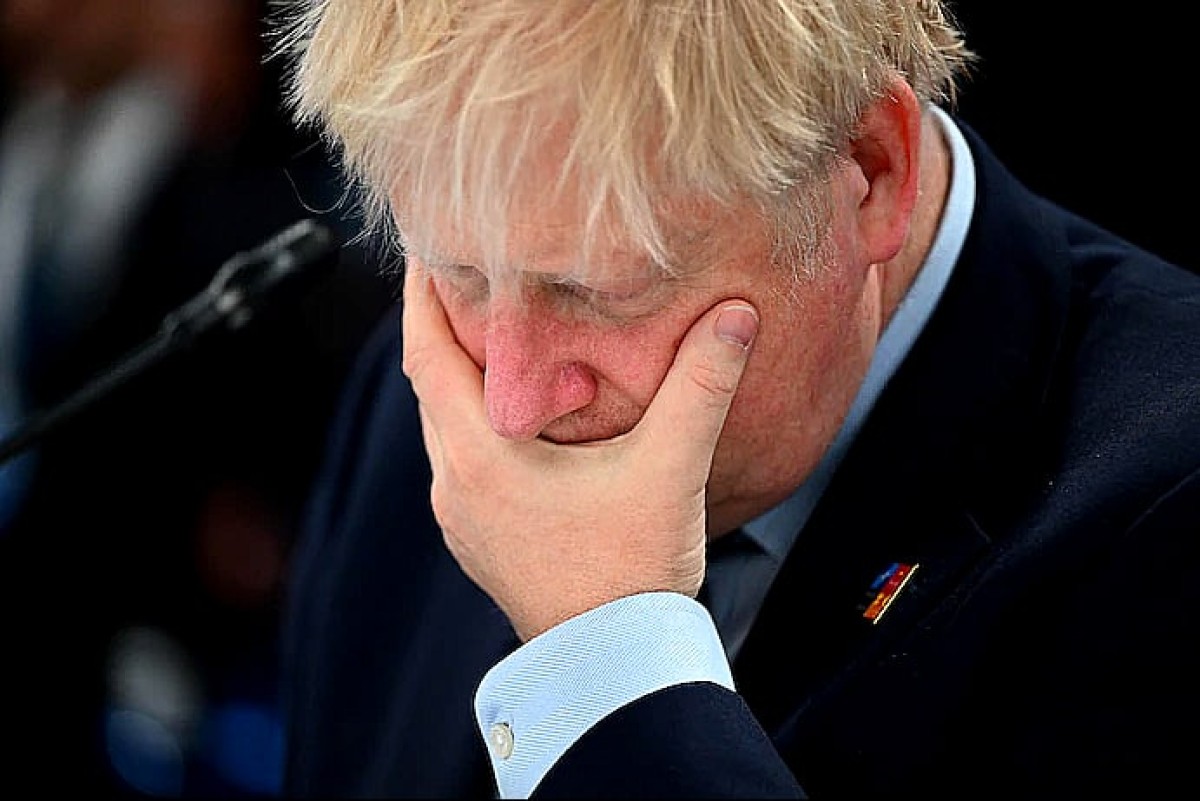 441
441
After months of resisting political pressures, Boris Johnson ultimately agreed to step down as prime minister last Thursday. Johnson’s cabinet collapsed after facing severe accusations and public condemnation for hosting a birthday party scandal during the COVID-19 lockdown, known as “Partygate.”
Although such controversies are deemed abhorrent in the eyes of British public opinion, they were not the primary factor that led to Johnson’s departure from his post.
For many months, Johnson withstood full-scale political and economic criticism until he was embroiled in a series of intra-party disputes. As a result, at least sixty of his ministers, deputy ministers, and other senior aides resigned.
Nonetheless, Johnson has reluctantly announced his resignation; he still plans to cling to power at No. 10 Downing Street as interim prime minister despite his utter blunders. This outrageous idea infuriated British political elites so that Keir Starmer, the head of the Labor Party, vowed to seek a vote of no confidence against Johnson if he continued in office.
Even though the following two factors have ramifications beyond Johnson’s fall, they surely contributed to his resignation to a greater or lesser extent:
I) War in Ukraine and nationwide inflation crisis
The soaring cost of energy and food items in the United Kingdom may certainly be attributed to Ukraine’s ongoing conflict. Moreover, the UK had to inject financial stimulus packages into its ailing economy following the COVID-19 pandemic, which has caused higher inflation rates.
Yet, Johnson’s economic team failed miserably in formulating adequate strategies to mitigate the additional inflationary repercussions of the war in Ukraine.
It is interesting to mention that the Western states shrewdly sought to maintain the flow of Russian oil to the global market while simultaneously weakening the Russian oil-based economy by fixing the price of Russian crude oil between $60 and $70 per barrel, thereby curtailing the Kremlin oil revenues. However, unfortunately, as the price of energy relentlessly surges, the mentioned strategy does not seem to have any promising prospect of resolving the present financial imbroglio in the West.
On the other hand, these punitive actions vis-à-vis Russia might provoke Moscow’s retaliatory steps regarding the price of grain, which could exacerbate the already deteriorating energy and food crisis in the UK.
Thus, the UK, for the time being, needs a more competent Prime Minister to tackle the threats of looming hyperinflation.
II) Scottish independence bid
Queen Elizabeth II ruled the United Kingdom, which includes Britain, Northern Ireland, Scotland, and Wales.
Brexit and Boris Johnson’s abject socio-economic performance seemed sufficient to escalate discontent among indignant Scottish citizens. the deepening of dissatisfaction among Scots due to Johnson’s fiscal plans has prompted Scots to view the question of independence more positively.
During the 2016 Brexit referendum across the United Kingdom, 62% of Scots chose to stay in the European Union. Indeed, Scots vehemently rejected Johnson’s Brexit agenda and considered it an insult. Furthermore, officials in Edinburgh assert that since the UK’s exit from the EU, Scotland has experienced substantial economic losses, such as massive unemployment rates and the ruin of the fishing industry. Philip Rycroft, a political activist and former member of the British government, stresses that Johnson only cares about the citizens of England and entirely disregards the Scots.
The local government of Scotland, led by Nicola Sturgeon, First Minister of Scotland, which held an unsuccessful independence referendum in 2014, reiterated her intentions, regardless of Westminster’s opposition, to organise the vote again in the near future. In addition, the dismal failure of the National Health Service (NHS) during the catastrophic COVID-19 breakout has fueled pro-self-determination views in Scotland.
If Scotland’s bid for independence emerged successfully, this political plight might put the United Kingdom on the brink of cataclysmic collapse and total disintegration.
The best-case scenario for London would be for Scotland to adopt a political system similar to Canada’s.
But, on the other hand, a dim future for Buckingham Palace may see Scotland’s transition into a free republic and end the British yoke forever.
Many commentators believe that Johnson could hold the British Prime Minister’s seat for three years because he had the backing of powerful capitalists and media moguls, who saw him as the ideal candidate to further their economic interests.
However, Johnson lacked the charisma required for the position of British prime minister. When he was the mayor of London and later the Prime Minister, he left a dark history of mendacity and scandals.
After Britain’s exit from the European Union, the Tories and Buckingham Palace concluded that Johnson should retire from politics.
There were even unsubstantiated allegations that Johnson received a phone call from Queen Elizabeth the day before he resigned, despite his adamant position not to step down.
Therefore, the mass resignation of many members of the Johnson cabinet was tantamount to a coup d’etat that finally forced Johnson to resign in disgrace. In short, Johnson was tasked with implementing “Brexit.” After attaining this objective, his political career was ended by higher authorities.
Comment
Post a comment for this article